
The Enchanting Waters of Rio Geba in Guinea-Bissau
Rio Geba, flowing through the heart of Guinea-Bissau, is not just a river; it is a lifeline that weaves through history, culture, and nature. The river is a haven for those seeking tranquility and a deep connection with the natural world. Its serene waters, surrounded by lush greenery and vibrant wildlife, offer a picturesque escape from the hustle and bustle of everyday life. As you journey along Rio Geba, you'll find charming villages where local traditions are alive and well. The people of Guinea-Bissau are known for their warm hospitality, and visitors are often welcomed with open arms. The riverbanks are dotted with mangroves, providing a unique ecosystem that supports a diverse array of flora and fauna. Birdwatchers will find this area particularly enticing, as it is home to many rare and beautiful species. For the adventurous traveler, Rio Geba offers numerous opportunities for exploration. You can take a boat tour to see the river from a different perspective, or even try your hand at fishing with the locals. The river's calm waters are perfect for kayaking and other water sports. No matter how you choose to experience Rio Geba, its beauty and serenity are sure to leave a lasting impression.
Local tips in Rio Geba
- Visit during the dry season (November to May) for the best weather and clearer waters.
- Bring binoculars for birdwatching; the river is a haven for many unique bird species.
- Hire a local guide to learn more about the river's history and the communities along its banks.
- Wear lightweight, long-sleeved clothing to protect against mosquitoes and the sun.
- Try local dishes made from fresh fish caught in the river for an authentic taste of the region.
The Enchanting Waters of Rio Geba in Guinea-Bissau
Rio Geba, flowing through the heart of Guinea-Bissau, is not just a river; it is a lifeline that weaves through history, culture, and nature. The river is a haven for those seeking tranquility and a deep connection with the natural world. Its serene waters, surrounded by lush greenery and vibrant wildlife, offer a picturesque escape from the hustle and bustle of everyday life. As you journey along Rio Geba, you'll find charming villages where local traditions are alive and well. The people of Guinea-Bissau are known for their warm hospitality, and visitors are often welcomed with open arms. The riverbanks are dotted with mangroves, providing a unique ecosystem that supports a diverse array of flora and fauna. Birdwatchers will find this area particularly enticing, as it is home to many rare and beautiful species. For the adventurous traveler, Rio Geba offers numerous opportunities for exploration. You can take a boat tour to see the river from a different perspective, or even try your hand at fishing with the locals. The river's calm waters are perfect for kayaking and other water sports. No matter how you choose to experience Rio Geba, its beauty and serenity are sure to leave a lasting impression.
When is the best time to go to Rio Geba?
Iconic landmarks you can’t miss
Restaurante Papa Loca
Discover the authentic flavors of Guinea-Bissau at Restaurante Papa Loca, a vibrant dining experience in the heart of Bissau.
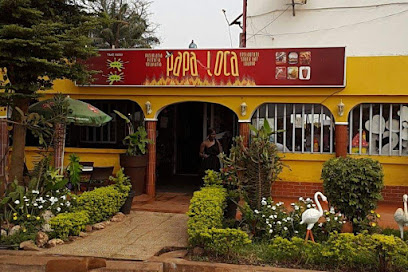
O Bistro
Discover the heart of Italy at O Bistro in Bissau, where authentic flavors meet a welcoming atmosphere for an unforgettable dining experience.
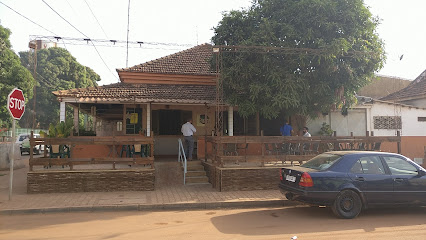
Centro Cultural Franco-Bissau-Guineense
Discover the vibrant heritage of Guinea-Bissau at the Centro Cultural Franco-Bissau-Guineense, a hub for art, culture, and community.
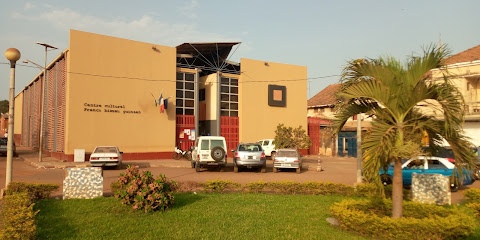
Hôtel Malaika
Discover the charm of Bissau while enjoying comfort and convenience at Hôtel Malaika, your ideal motel getaway in Guinea-Bissau.

Empire Square
Experience the calm of Empire Square in Bissau, a serene memorial park that honors the rich history and culture of Guinea-Bissau.
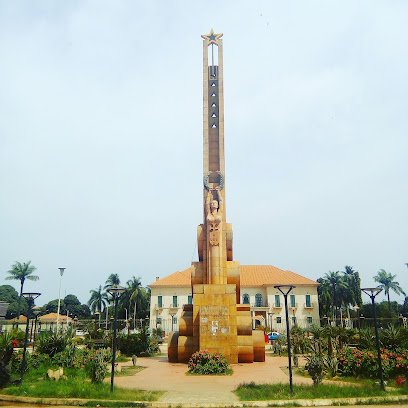
CANAFISTRA Crescendo a Beira Rio
Experience authentic Guinea-Bissau cuisine at CANAFISTRA Crescendo a Beira Rio, where riverside dining meets local flavors in Safim.
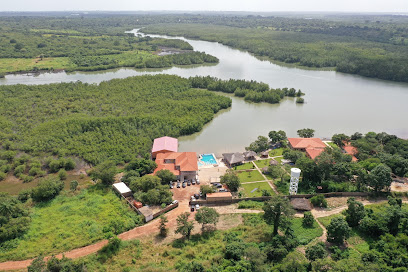
Gã Mela
Experience the rich flavors of Guinea-Bissau at Gã Mela, a must-visit restaurant in Bissau, blending culture and culinary excellence.
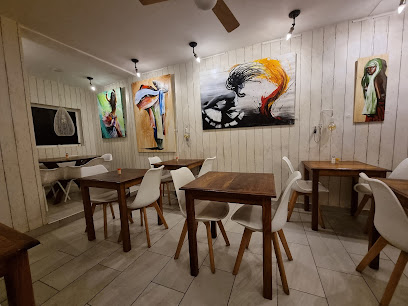
Praca Titina Silá
Explore the serene beauty of Praca Titina Silá, a lush garden oasis in Bissau where tranquility meets local culture.
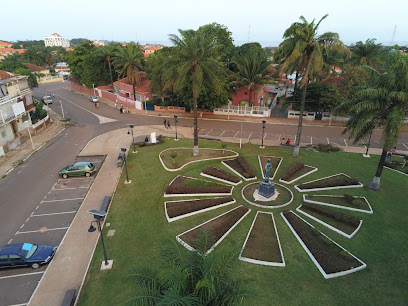
Cufada Lagoons Natural Park
Discover the stunning landscapes and rich biodiversity of Cufada Lagoons Natural Park, a serene haven for nature lovers in Guinea-Bissau.
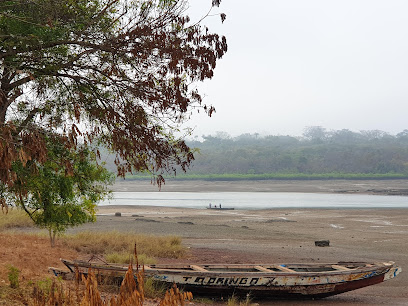
Geba River
Explore the serene beauty and rich biodiversity of the Geba River in Guinea-Bissau, a perfect blend of adventure and tranquility.
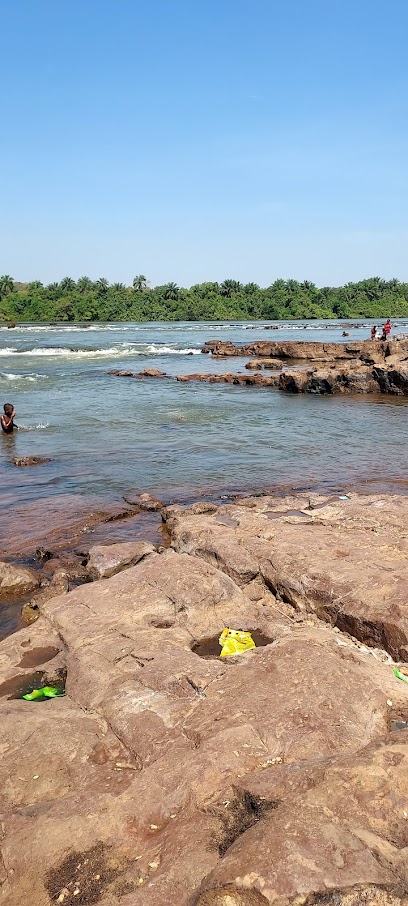
Praça dos Martires
Discover the serene beauty and historical significance of Praça dos Mártires, a must-visit park in the heart of Bissau, Guinea-Bissau.
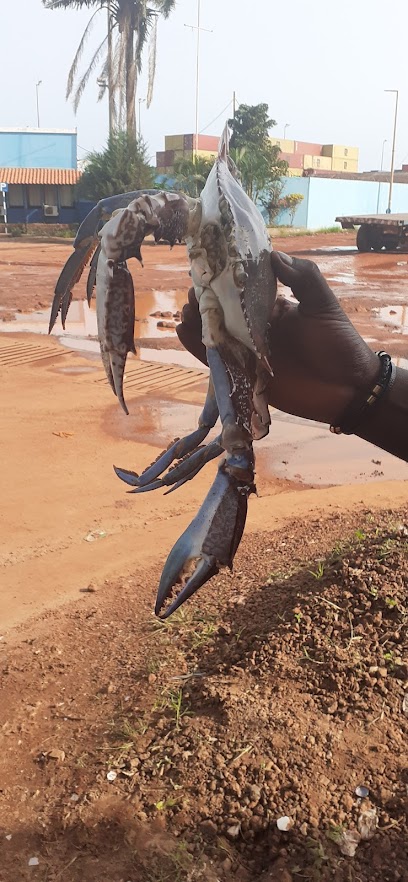
Fort São José da Amura
Discover the historical grandeur of Fort São José da Amura, Bissau's iconic fortress showcasing its colonial heritage and offering stunning views.
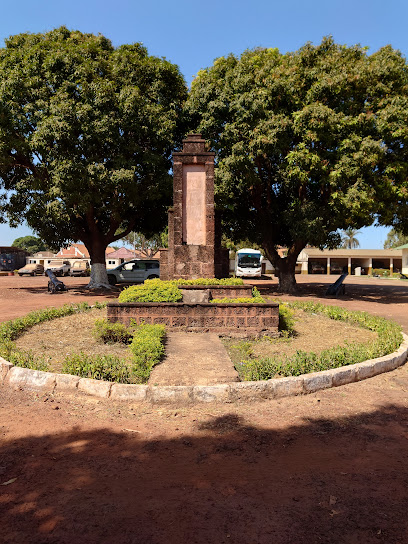
Centro Artístico Juvenil
Explore the vibrant Centro Artístico Juvenil in Bissau, where creativity meets tradition through unique handicrafts and local artistry.

Apartments CUBURNEL
Discover the charm of Bafatá at Apartments CUBURNEL, where comfort meets local hospitality in the heart of Guinea-Bissau.
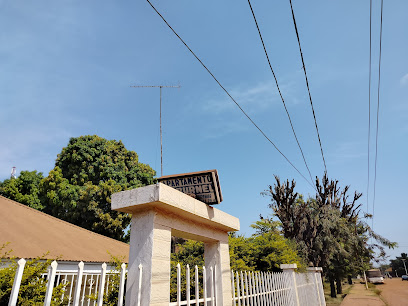
Rio Grande de Buba
Experience the serene beauty of Rio Grande de Buba, a natural wonder in Guinea-Bissau, perfect for eco-tourism and cultural exploration.
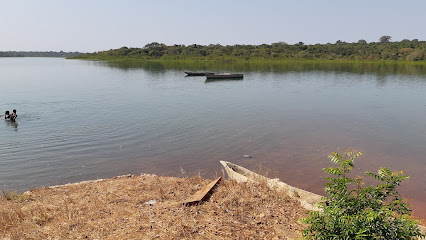
Unmissable attractions to see
Centro Cultural Franco-Bissau-Guineense
Discover the vibrant culture and artistic spirit of Guinea-Bissau at the Centro Cultural Franco-Bissau-Guineense in Bissau.
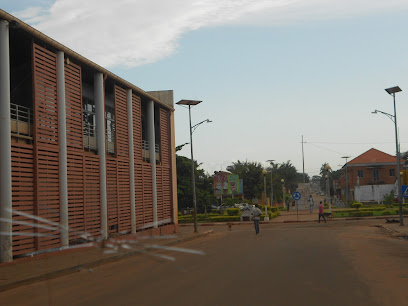
Empire Square
Discover the serene beauty and historical significance of Empire Square, a memorial park in Bissau, Guinea-Bissau, perfect for reflection and relaxation.
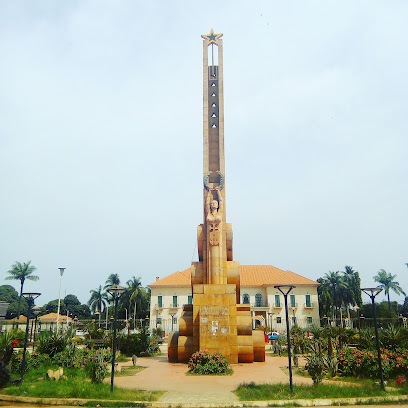
Praca Titina Silá
Explore the lush beauty of Praca Titina Silá, a serene garden oasis in Bissau, perfect for relaxation and cultural immersion.
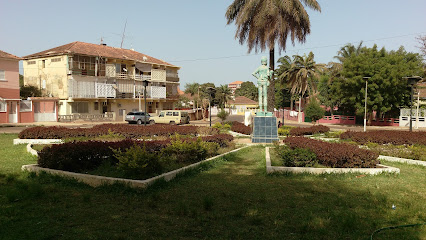
Cufada Lagoons Natural Park
Discover the breathtaking beauty of Cufada Lagoons Natural Park, a serene escape in Guinea-Bissau filled with rich wildlife and stunning landscapes.
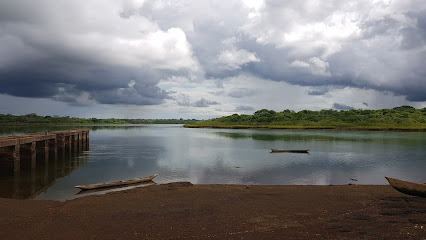
Fort São José da Amura
Discover the historical significance of Fort São José da Amura, a stunning castle in Bissau, Guinea-Bissau, and experience the culture of this unique region.
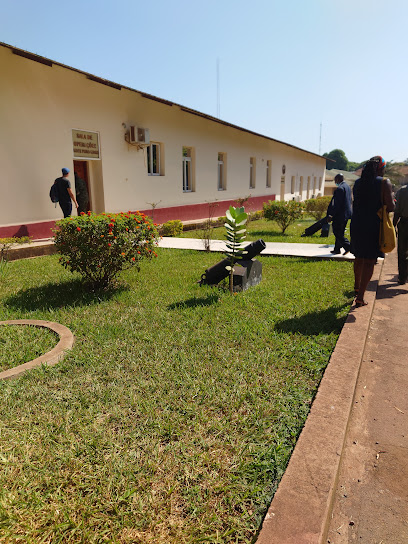
Dulombi-Boe National Park_1
Explore Dulombi-Boe National Park, a hidden paradise in Guinea-Bissau, where lush landscapes and diverse wildlife come together for an unforgettable adventure.

Essential places to dine
Dunia Hotel Bissau (Azalaï Hotel 24 de Setembro)
Experience authentic Guinean cuisine and warm hospitality at Dunia Hotel Bissau - your cultural haven in the heart of Guinea-Bissau.
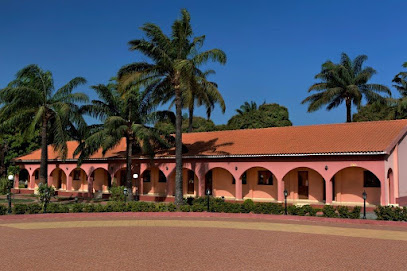
Restaurante Papa Loca
Savor authentic Guinea-Bissauan cuisine at Restaurante Papa Loca - where local flavors meet vibrant dining experiences.
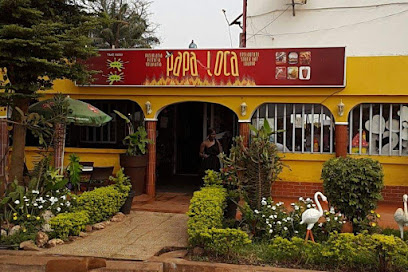
O Bistro
Experience authentic Italian cuisine at O Bistro in Bissau, where delicious pizzas and pastas await in a warm and inviting atmosphere.
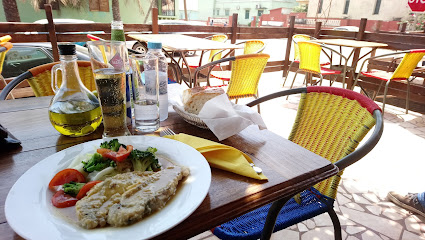
Coqueiros Bissau
Experience authentic Guinea-Bissauan cuisine at Coqueiros Bissau – where tradition meets flavor in a welcoming atmosphere.
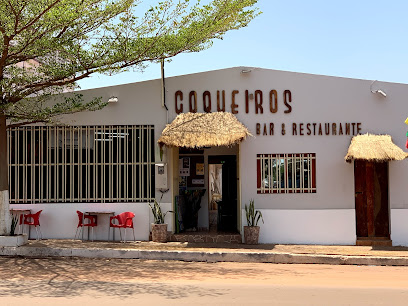
Lá Rosa restaurant مطعم لبناني عربي
Discover authentic Lebanese cuisine at Lá Rosa restaurant in Bissau - a culinary oasis offering delicious dishes and vibrant atmosphere.
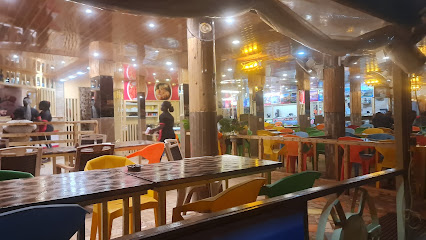
A Padeira Africana
Discover authentic African cuisine at A Padeira Africana in Bissau - a culinary treasure showcasing Guinea-Bissau's rich flavors and warm hospitality.
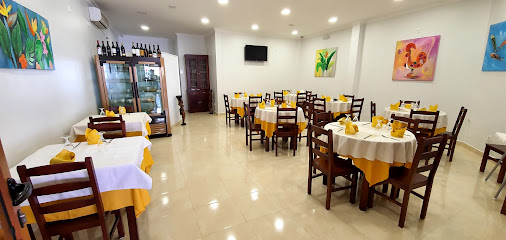
CANAFISTRA Crescendo a Beira Rio
Discover authentic Guinea-Bissau cuisine at Crescendo a Beira Rio with stunning riverside views in Safim.
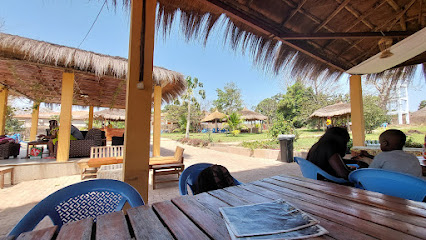
Almagui Restaurante & Apart-Hotel
Discover authentic flavors at Almagui Restaurante & Apart-Hotel in Bissau – where culinary tradition meets modern comfort.
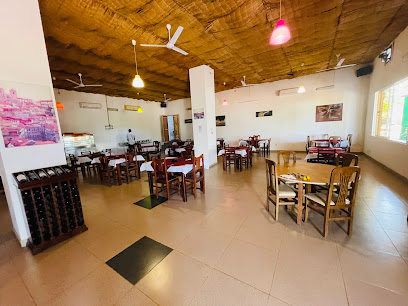
Restaurant Chez Amy
Experience authentic Guinea-Bissauan cuisine at Restaurant Chez Amy - a culinary treasure in Bissau with delightful flavors and warm hospitality.
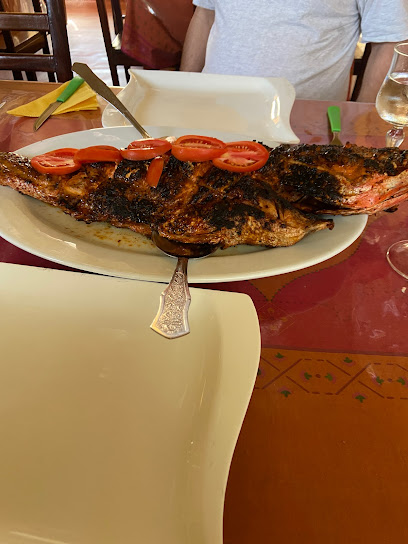
Gã Mela
Experience authentic Guinea-Bissau cuisine at Gã Mela, where vibrant flavors meet warm hospitality in the heart of Bissau.
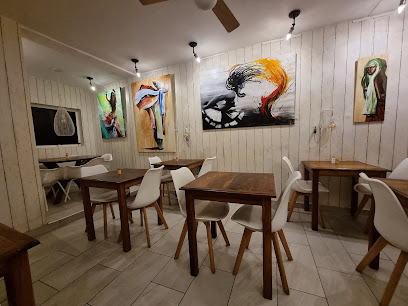
Marisqueira de Safim
Discover authentic seafood delights at Marisqueira de Safim, where local flavors meet warm hospitality in Guinea-Bissau.
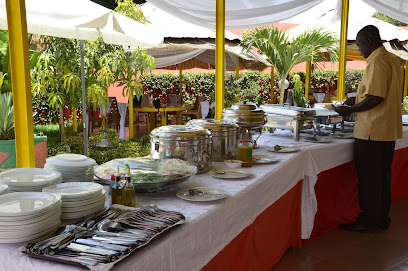
Handi - Taste of indian cuisine
Experience authentic Indian cuisine at Handi in Bissau – where rich flavors meet warm hospitality for an unforgettable dining adventure.
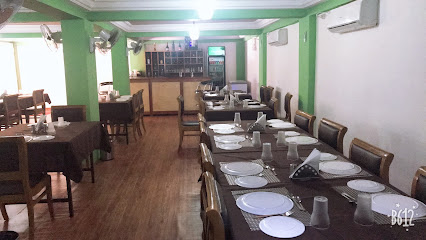
Restaurante Ali Baba
Discover authentic flavors at Restaurante Ali Baba in Bissau – where local cuisine meets warm hospitality.

Gelataria Gellati
Discover the best ice cream in Guinea-Bissau at Gelataria Gellati - indulge in sweet treats and enjoy the local flavor!
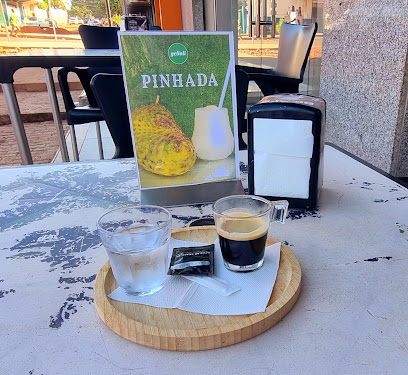
Restaurante Oásis
Savor authentic Guinea-Bissauan cuisine at Restaurante Oásis, where local flavors meet warm hospitality in the heart of Bissau.
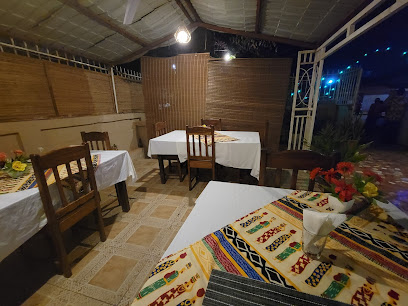
Markets, malls and hidden boutiques
Fashion Canté
Discover the vibrant styles at Fashion Canté, Bissau's premier clothing store, blending contemporary designs with traditional heritage.
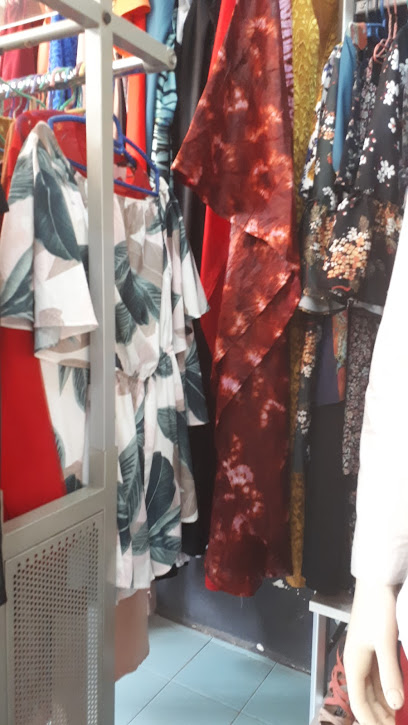
SmellMe Perfumaria
Explore SmellMe Perfumaria in Bissau for an exquisite selection of unique fragrances that embody the spirit of luxury and sophistication.
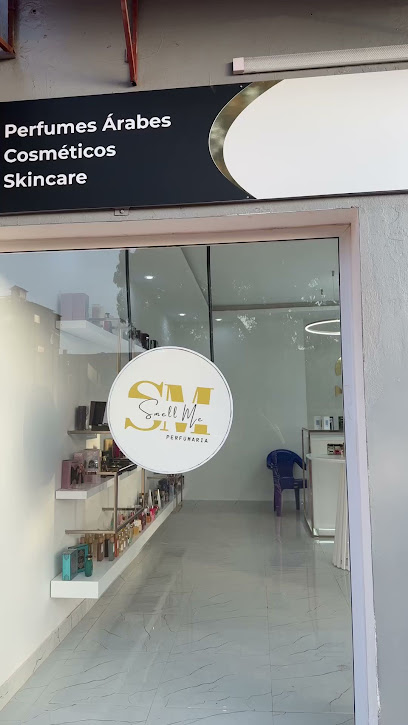
Espaço Vaidosa
Discover beauty at Espaço Vaidosa, Bissau's premier cosmetics store, offering a wide range of products and expert advice to enhance your beauty experience.

Loja Yamila
Explore Loja Yamila in Bissau for exquisite formal wear that ensures you look stunning for every occasion.
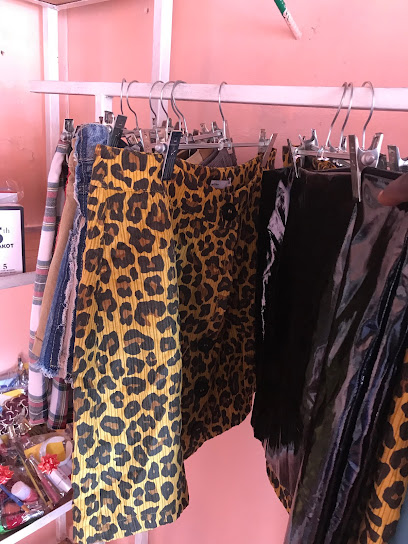
Shivam Comercio Geral Sarl
Explore the vibrant world of home goods at Shivam Comercio Geral Sarl, Bissau's premier store for unique and local finds.
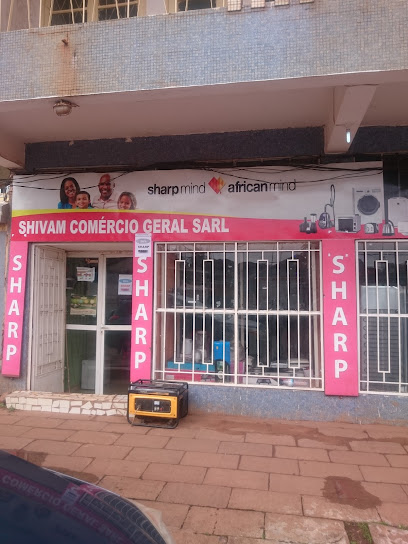
Donuts Spot
Discover the sweetness of Bissau at Donuts Spot, where delicious donuts and fast food delights await every visitor.
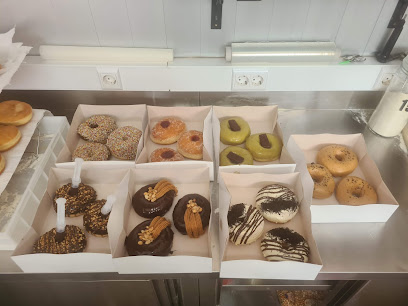
Sabores da Tabanca
Explore the authentic tastes of Guinea-Bissau at Sabores da Tabanca, your destination for local African goods and culinary treasures.
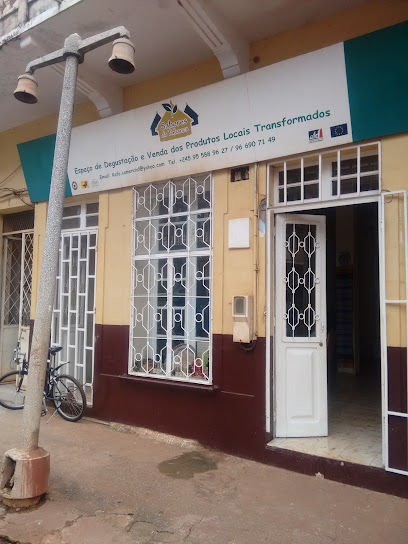
KUSSAS DI TCHON
Explore KUSSAS DI TCHON in Bissau for a unique selection of authentic local crafts and souvenirs that capture the essence of Guinea-Bissau.
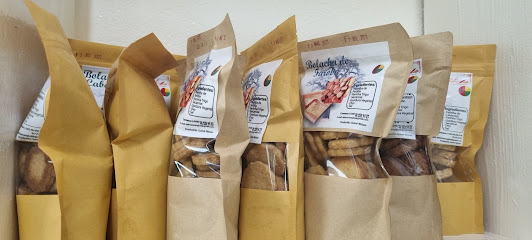
Boutique Salima
Explore the latest in women's fashion at Boutique Salima in Bissau, where style meets local craftsmanship in a vibrant shopping experience.

CIJ liquor shop
Discover unique beverages and the local spirit culture at CIJ Liquor Shop in Bissau, Guinea-Bissau.
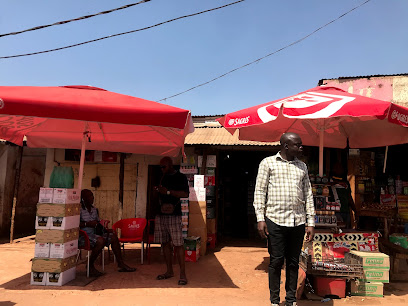
Loja de Mamadu
Explore the vibrant craftsmanship of Loja de Mamadu, a store in Bissau, Guinea-Bissau, offering unique souvenirs and local artistry.
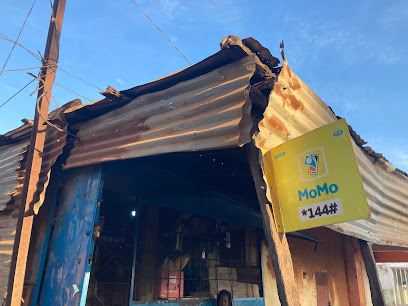
Contentor Rua Timor Praça de Bandim
Experience the vibrant local culture at Contentor Rua Timor in Praça de Bandim, Bissau's unique tobacco shop and community hub.
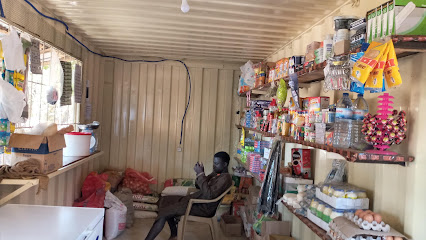
Loja Uno
Explore Loja Uno in Bissau for a unique shopping experience featuring local and international clothing styles.
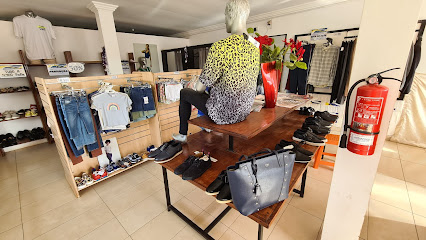
Africa Alimentar
Explore the vibrant grocery store, Africa Alimentar, for a taste of authentic Guinea-Bissau with fresh local produce and unique culinary items.

Guiné Impex
Explore Bissau's premier electronics store, Guiné Impex, for the latest gadgets and exceptional service in Guinea-Bissau.

Essential bars & hidden hideouts
Liberty cafe bar lounge
Immerse yourself in Bissau's vibrant nightlife at Liberty Cafe Bar Lounge, a perfect blend of refreshing drinks and lively atmosphere.
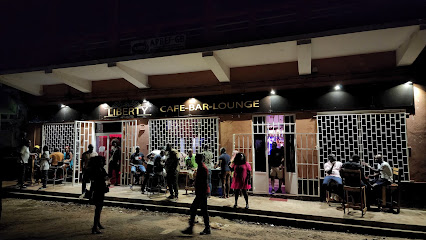
Mercearia
Discover the vibrant ambiance of Mercearia, a cozy bar in Bissau perfect for relaxing with a drink and meeting fellow travelers.
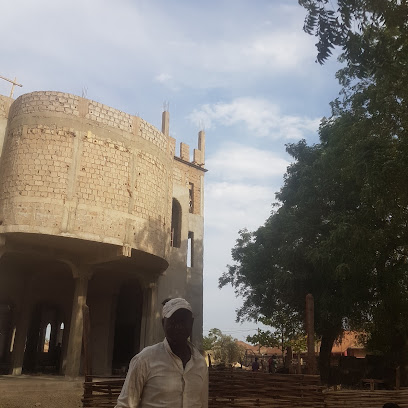
Antika Bissau
Experience the vibrant nightlife of Bissau at Antika Bissau, where local culture meets a lively lounge atmosphere.
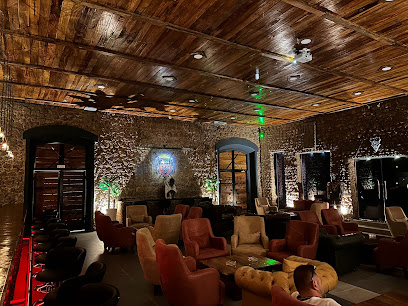
X Klub
Discover the vibrant nightlife at X Klub, the premier bar in Bissau, Guinea-Bissau, where locals and tourists come together for unforgettable experiences.
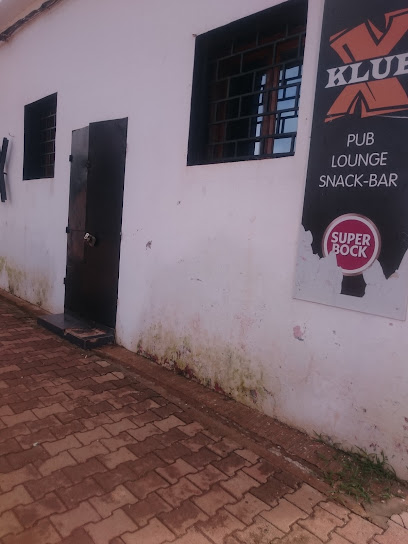
Sagres Sidewalk Bar
Experience the vibrant nightlife and local flavors at Sagres Sidewalk Bar in Bissau, Guinea-Bissau—your perfect spot to unwind.
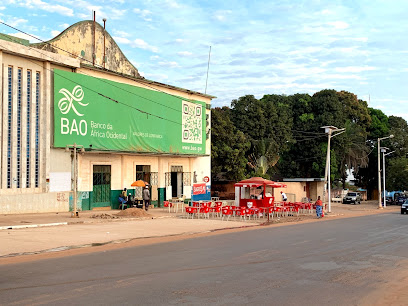
SUNFON
Discover the lively nightlife at SUNFON Bar in Bissau, where local drinks and vibrant atmosphere meet to create unforgettable evenings.
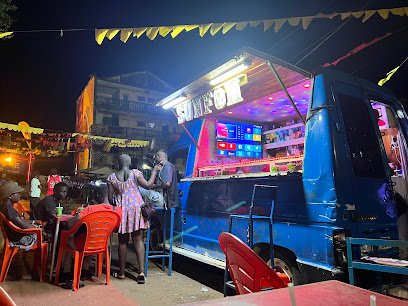
Bar do Zema
Experience the taste of Guinea-Bissau at Bar do Zema, where authentic grilled flavors meet a vibrant atmosphere in the heart of Bissau.
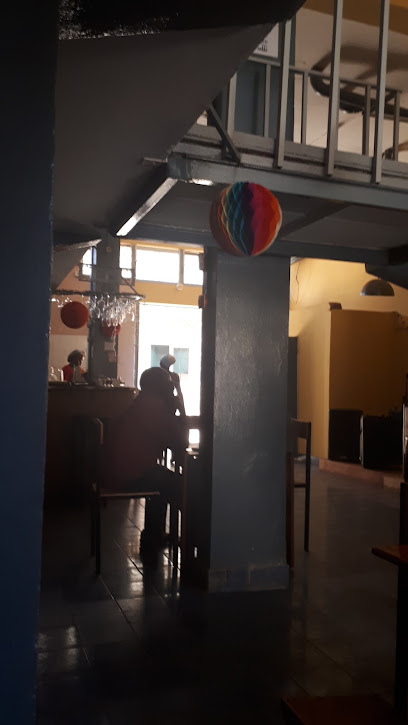
Bar de Toni
Experience the vibrant local culture at Bar de Toni, a lively bar in Bissau, Guinea-Bissau, perfect for unwinding and socializing.

Baloba's Bar
Experience the vibrant nightlife of Bissau at Baloba's Bar, where local flavors meet a welcoming atmosphere.
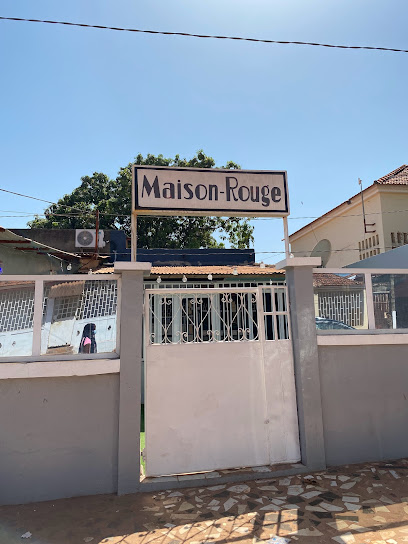
João Bideta
Discover the vibrant nightlife at João Bideta, a charming bar in Bissau that offers a taste of local culture and refreshing drinks.
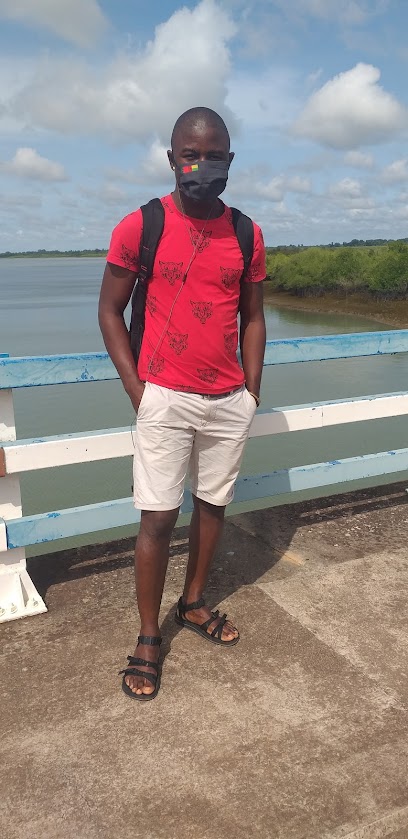
Barcafon Bar Restaurante
Discover the vibrant atmosphere and authentic flavors at Barcafon Bar Restaurante in Bissau, a must-visit for tourists seeking local cuisine.
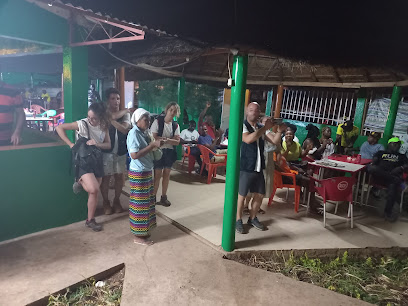
FREE BAR
Discover the vibrant nightlife of Bissau at FREE BAR, where local drinks and friendly faces create unforgettable evenings.

Bar Havana
Experience the vibrant nightlife of Bissau at Bar Havana, where local culture and delicious drinks come together in a lively atmosphere.

Bar Farol
Experience the vibrant atmosphere and stunning views at Bar Farol, the perfect coastal retreat in Bissau, Guinea-Bissau.

Local Phrases about Rio Geba
-
- HelloOlá
[oh-lah] - GoodbyeTchau
[chow] - YesSim
[seem] - NoNão
[now] - Please/You're welcomePor favor/De nada
[por fah-vor/de nah-dah] - Thank youObrigado
[oh-bree-gah-doh] - Excuse me/SorryDesculpe/Desculpa
[des-kool-peh/des-kool-pah] - How are you?Como estás?
[koh-moh es-tahsh] - Fine. And you?Bem. E tu?
[bem. eh too] - Do you speak English?Falas Inglês?
[fah-lahsh een-glehs] - I don't understandNão entendo
[now en-ten-doh]
- HelloOlá
-
- I'd like to see the menu, pleaseGostaria de ver o menu, por favor
[gohs-tah-ree-ah deh vehr ooh meh-noo, poor fah-vor] - I don't eat meatNão como carne
[now koh-moh kahr-neh] - Cheers!Saúde!
[sah-oo-deh] - I would like to pay, pleaseGostaria de pagar, por favor
[gohs-tah-ree-ah deh pah-gahr, poor fah-vor]
- I'd like to see the menu, pleaseGostaria de ver o menu, por favor
-
- Help!Ajuda!
[ah-zhoo-dah] - Go away!Vai-te embora!
[vah-ee-teh ehm-boh-rah] - Call the Police!Chama a polícia!
[shah-mah ah poh-lee-see-ah] - Call a doctor!Chama um médico!
[shah-mah oom meh-dee-koh] - I'm lostEstou perdido
[ehs-toh pehr-dee-doh] - I'm illEstou doente
[ehs-toh doo-ehn-teh]
- Help!Ajuda!
-
- I'd like to buy...Quero comprar...
[keh-roh kohm-prahr] - I'm just lookingEstou só a ver
[ehs-toh soh ah vehr] - How much is it?Quanto custa?
[kwan-toh koos-tah] - That's too expensiveIsso é muito caro
[ee-soh eh mwee-toh kah-roh] - Can you lower the price?Pode baixar o preço?
[poh-deh bahy-shahr ooh preh-soh]
- I'd like to buy...Quero comprar...
-
- What time is it?Que horas são?
[keh oh-rahsh sah-oh] - It's one o'clockÉ uma hora
[eh oo-mah oh-rah] - Half past (10)Meia (10)
[may-ah (10)] - MorningManhã
[mahn-yah] - AfternoonTarde
[tahr-deh] - EveningNoite
[noy-teh] - YesterdayOntem
[ohn-tehm] - TodayHoje
[oh-zheh] - TomorrowAmanhã
[ah-mahn-yah] - 1Um
[oom] - 2Dois
[doh-ees] - 3Três
[trehs] - 4Quatro
[kwah-troh] - 5Cinco
[seen-koh] - 6Seis
[saysh] - 7Sete
[seh-teh] - 8Oito
[oy-toh] - 9Nove
[noh-veh] - 10Dez
[dehs]
- What time is it?Que horas são?
-
- Where's a/the...?Onde fica o/a...?
[ohn-deh fee-kah oh/ah] - What's the address?Qual é o endereço?
[kwahl eh oh ehn-deh-reh-soh] - Can you show me (on the map)?Podes mostrar-me (no mapa)?
[poh-dehs moh-strahr-meh (noo mah-pah)] - When's the next (bus)?Quando é o próximo (autocarro)?
[kwan-doh eh ooh proh-ksee-moh (ow-toh-kah-roo)] - A ticket (to ....)Um bilhete (para ....)
[oom bee-yeh-teh (pah-rah)]
- Where's a/the...?Onde fica o/a...?
History of Rio Geba
-
Long before European explorers set foot in the region, the area surrounding Rio Geba was inhabited by indigenous tribes, notably the Balanta and the Pepel. These tribes thrived on the fertile lands and rich waters of the river, developing intricate agricultural and fishing techniques that supported their communities.
-
In the late 15th century, Portuguese explorers arrived at the mouth of Rio Geba. This marked the beginning of a long period of Portuguese influence and eventual colonization. The river became an essential route for the transportation of goods and slaves, playing a crucial role in the transatlantic slave trade.
-
During the height of the transatlantic slave trade, Rio Geba served as a vital artery for the movement of enslaved Africans. Captured individuals were transported down the river to coastal ports, where they were shipped to the Americas and Europe. This dark chapter left an indelible mark on the region's history and its people.
-
Throughout the colonial period, the indigenous populations around Rio Geba resisted Portuguese rule. Numerous rebellions and uprisings took place, highlighting the resilience and determination of the local communities. These acts of resistance were pivotal in shaping the region's historical narrative.
-
In the 20th century, Rio Geba became a significant backdrop for Guinea-Bissau's struggle for independence. The PAIGC (African Party for the Independence of Guinea and Cape Verde) used the region as a strategic base for their guerrilla warfare against Portuguese forces. The river's dense mangroves and remote areas provided cover and support for the liberation fighters.
-
After gaining independence in 1973, the region around Rio Geba saw various development projects aimed at improving infrastructure and living conditions. Efforts were made to harness the river's potential for agriculture, fishing, and transportation, contributing to the socio-economic growth of Guinea-Bissau.
-
Rio Geba is not only a historical landmark but also a cultural hub for Guinea-Bissau. The river and its surroundings are home to a rich tapestry of traditions, music, and folklore. Festivals and rituals often take place along its banks, celebrating the cultural heritage of the diverse communities that reside in the area.
-
Today, Rio Geba remains an essential part of Guinea-Bissau's landscape. It continues to support the livelihoods of many through fishing and agriculture. The river also attracts tourists who are keen to explore its history, natural beauty, and the vibrant culture of the local population.
Rio Geba Essentials
-
Rio Geba is accessible via Osvaldo Vieira International Airport in Bissau, the capital of Guinea-Bissau. From Bissau, you can take a taxi or hire a private car to reach Rio Geba, which is approximately 100 kilometers away. The journey by road takes around 2 to 3 hours. There are also occasional local buses (candongas) that operate between Bissau and Rio Geba, although these can be less reliable.
-
Within Rio Geba, transportation options include taxis, motorbike taxis (moto-taxis), and local minibuses. Taxis are relatively inexpensive and convenient, but make sure to negotiate the fare beforehand. Moto-taxis are a faster option for navigating through traffic but come with higher safety risks. If you prefer a more local experience, try the minibuses, although they can be crowded and less punctual.
-
The official currency in Guinea-Bissau is the West African CFA franc (XOF). Credit cards are not widely accepted, so it is advisable to carry cash. ATMs are available in Bissau but are scarce in Rio Geba, so ensure you withdraw sufficient funds before leaving the capital. Small denominations are useful for everyday transactions.
-
Rio Geba is generally safe for tourists, but it is important to exercise caution. Avoid walking alone at night and stay away from poorly lit areas. Petty theft, such as pickpocketing, can occur in crowded places, so keep your belongings secure. Areas near the port and certain neighborhoods in Bissau are known for higher crime rates and should be avoided if possible.
-
In case of an emergency, dial 112 for immediate assistance. The local hospital in Rio Geba can provide basic medical care, but for serious conditions, it is advisable to seek treatment in Bissau. Carry a basic first aid kit and any necessary medications with you. It is also recommended to have travel insurance that covers medical emergencies.
-
Fashion: Do dress conservatively, especially in rural areas. Avoid wearing revealing clothing. Religion: Do respect local customs and traditions, particularly in religious settings. Remove your shoes before entering mosques. Public Transport: Do be patient, as public transport can be slow and crowded. Don’t argue over fares; negotiate calmly. Greetings: Do greet people with a handshake and a polite 'Bom dia' (Good morning). Eating & Drinking: Do try local dishes and accept food offerings graciously. Don’t drink tap water; stick to bottled water.
-
To experience Rio Geba like a local, visit the local markets where you can buy fresh produce and handcrafted goods. Engage with locals, who are often friendly and willing to share stories about the area's history and culture. Don’t miss the opportunity to take a boat trip on the Rio Geba river for stunning views and a unique perspective of the region. For a truly local experience, participate in a community event or festival.
Trending Landmarks in Rio Geba
-
Restaurante Papa Loca
-
O Bistro
-
Centro Cultural Franco-Bissau-Guineense
-
Hôtel Malaika
-
Empire Square
-
CANAFISTRA Crescendo a Beira Rio
-
Gã Mela
-
Praca Titina Silá
-
Cufada Lagoons Natural Park
-
Geba River
-
Praça dos Martires
-
Fort São José da Amura
-
Centro Artístico Juvenil
-
Apartments CUBURNEL
-
Rio Grande de Buba
Nearby Cities to Rio Geba
-
Things To Do in Bissau
-
Things To Do in Quebo
-
Things To Do in Canchungo
-
Things To Do in Janjanbureh
-
Things To Do in Soma
-
Things To Do in Farafenni
-
Things To Do in Brikama
-
Things To Do in Gunjur
-
Things To Do in Banjul
-
Things To Do in Lamin
-
Things To Do in Serekunda
-
Things To Do in Serrekunda
-
Things To Do in Bakau
-
Things To Do in Kaolack
-
Things To Do in Conakry









